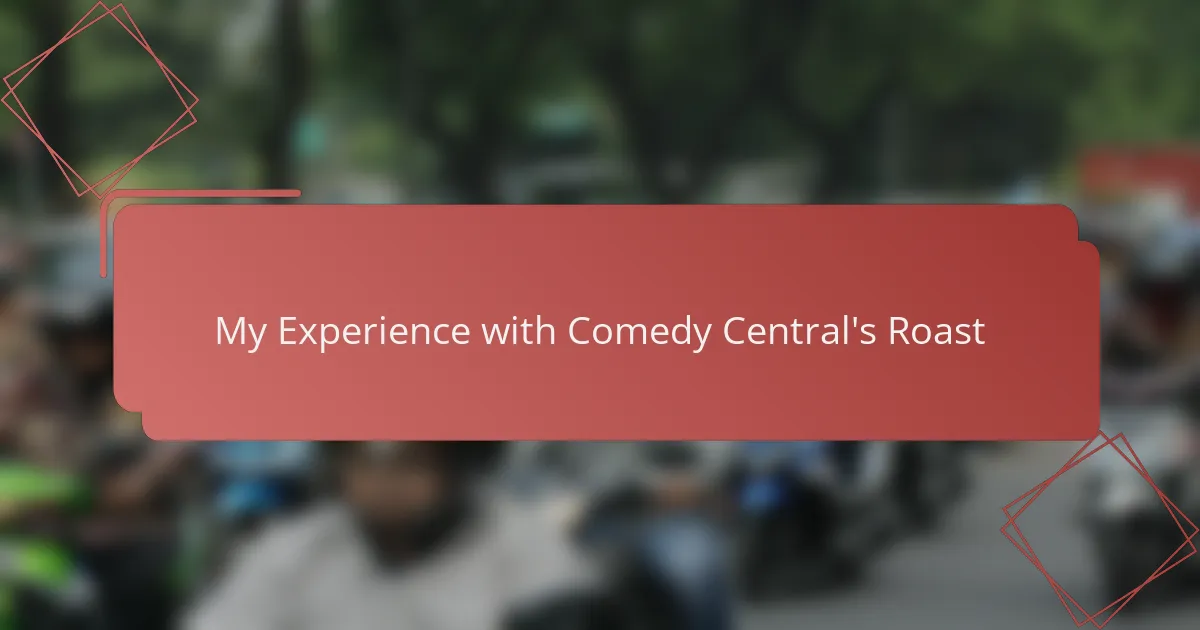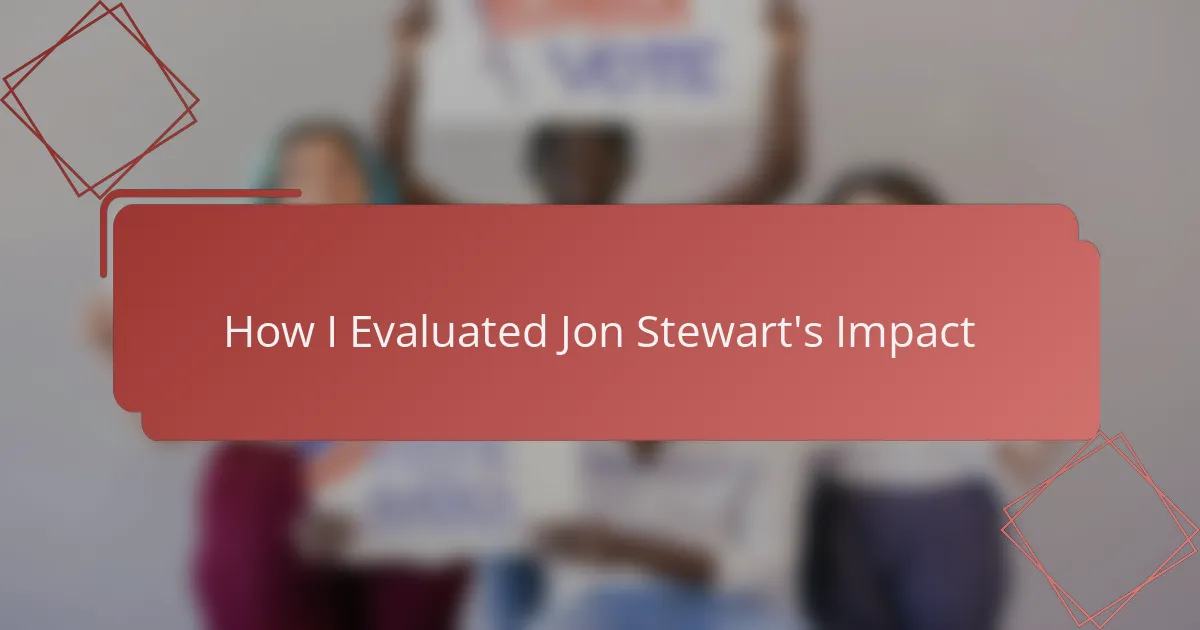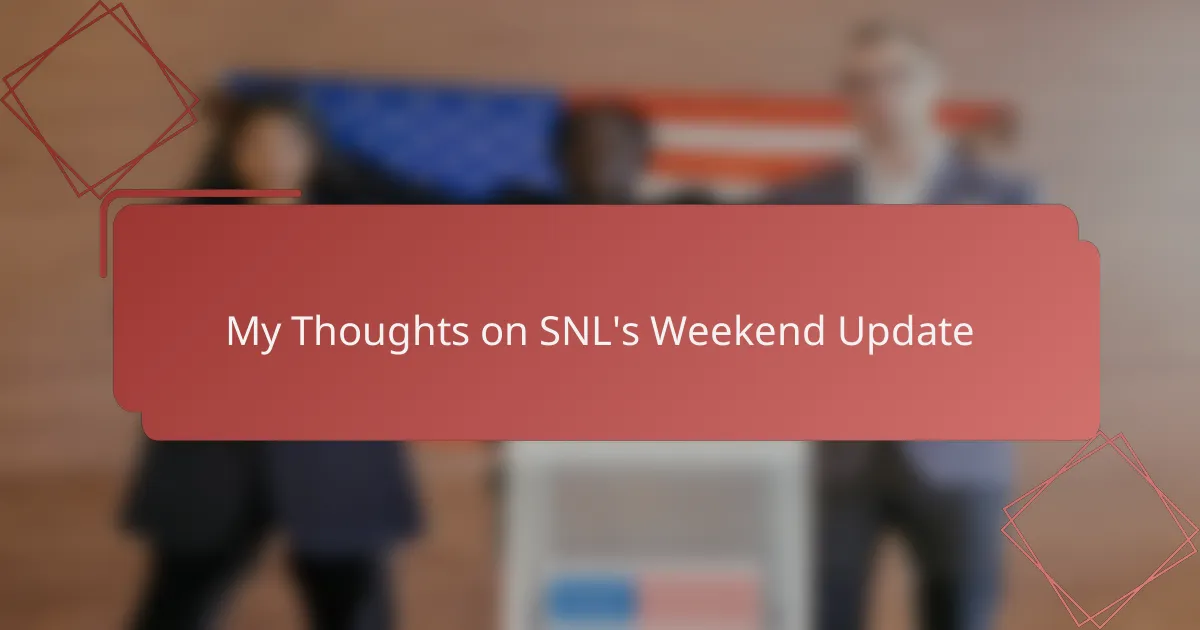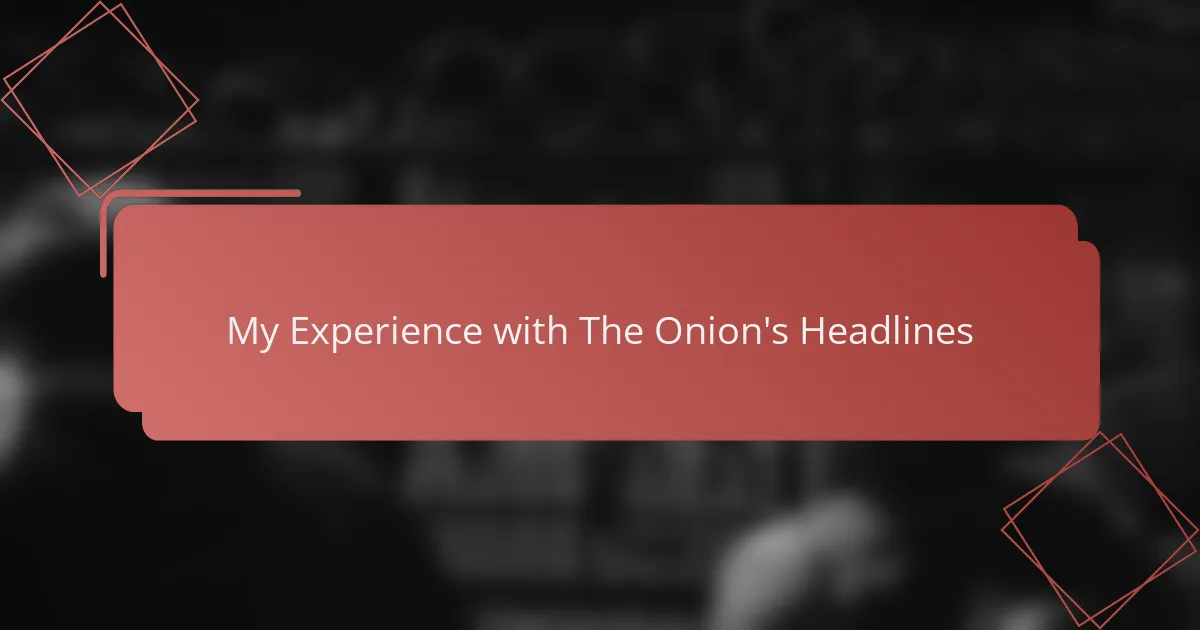Key takeaways
- Political satire effectively uses humor to challenge authority, provoke thought, and highlight societal issues.
- Comedy Central’s Roasts blend entertainment with social commentary, employing exaggeration and irony to expose political flaws.
- The emotional mix of laughter and discomfort in roasts encourages audiences to question accepted norms and biases.
- Techniques such as clever personal attacks can humanize political figures while still prompting critical reflection on their actions.
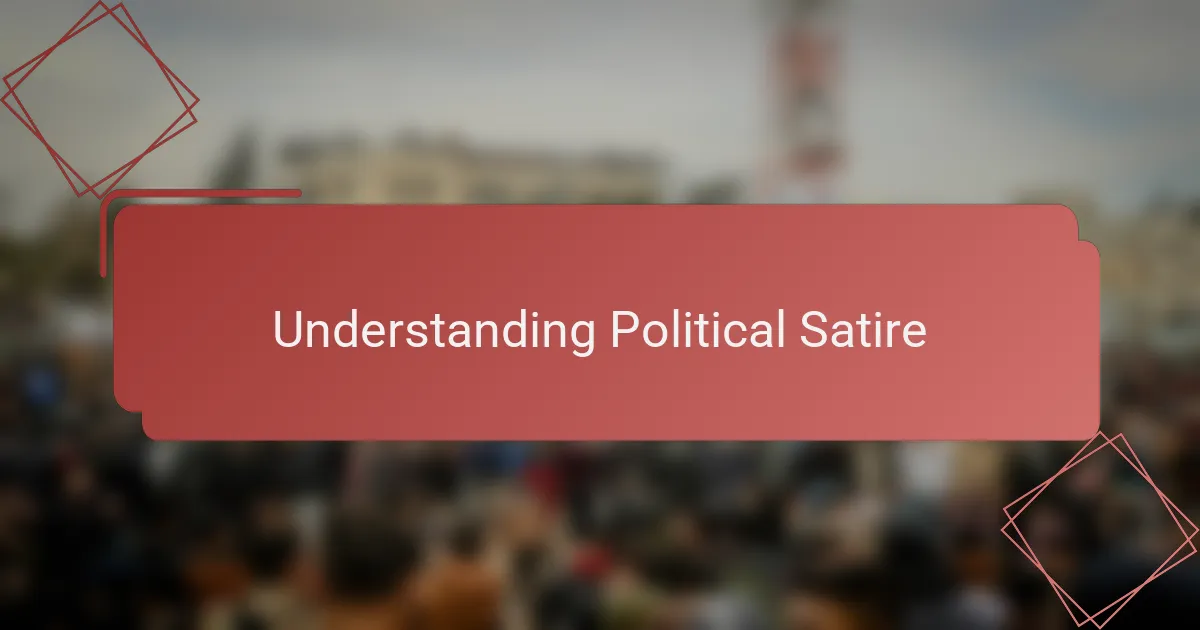
Understanding Political Satire
Political satire has always struck me as a powerful tool for challenging societal norms and exposing political absurdities. When I first watched Comedy Central’s Roasts, I was struck by how the comedians used humor not just to entertain but to provoke thought about political figures and their actions. This blend of biting wit and sharp critique made me appreciate how satire cuts through the noise.
Over time, I’ve noticed that political satire often walks a fine line—it’s as much about making people laugh as it is about making them reflect. Comedy Central’s Roasts serve as a perfect example, where humor becomes a vehicle to expose hypocrisy and spark conversation.
- Uses irony and exaggeration to highlight political issues
- Employs humor to criticize leaders and policies without direct confrontation
- Encourages audiences to question authority and societal norms
- Balances entertainment with underlying social commentary
- Often provokes mixed emotions, from laughter to discomfort, to inspire dialogue
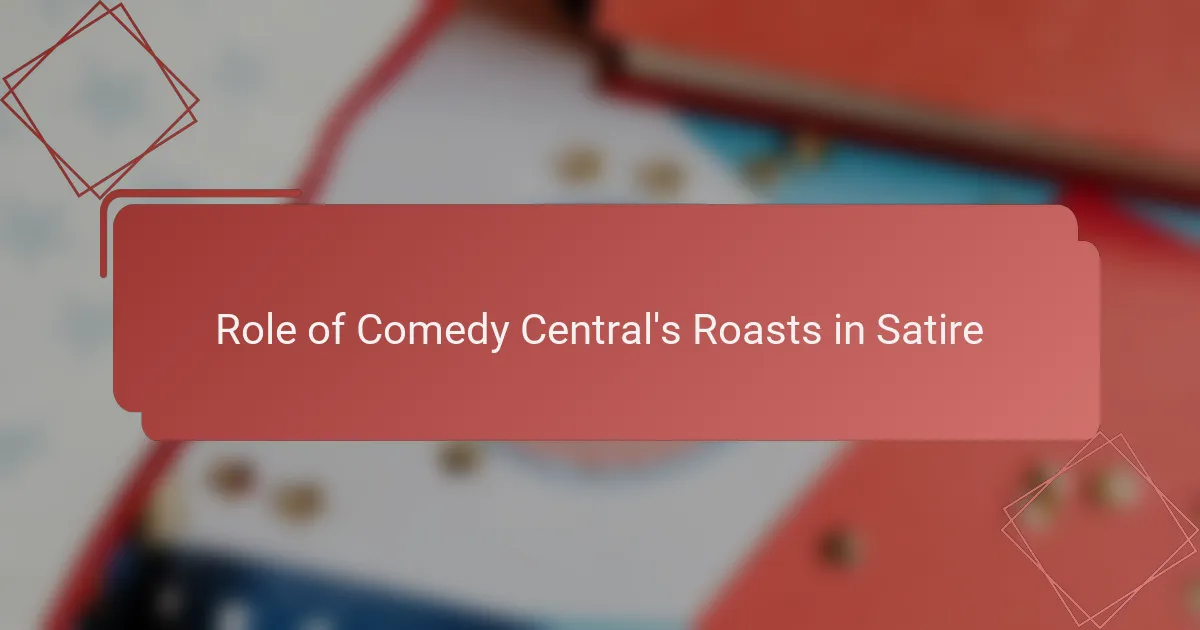
Role of Comedy Central’s Roasts in Satire
What fascinates me most about Comedy Central’s Roasts is how they expertly use irony and exaggeration to spotlight political flaws. Have you ever noticed how a sharp one-liner can cut deeper than a formal critique? From my experience, these roasts don’t just aim for laughs—they push us to see the contradictions in leaders’ words and deeds.
When watching a roast, I sometimes find myself laughing and squirming at the same time. That mix of amusement and discomfort is intentional; it’s satire’s way of nudging us to question what we accept at face value. Comedy Central’s approach feels like an unfiltered conversation that dares to challenge authority while still holding our attention with humor.
I’ve always thought that’s what makes these roasts stand out in political satire—they strike a balance between entertainment and meaningful social commentary. They dare to mock power openly, yet their humor invites us to think critically rather than just react. Isn’t that blend of fun and reflection what good satire is all about?
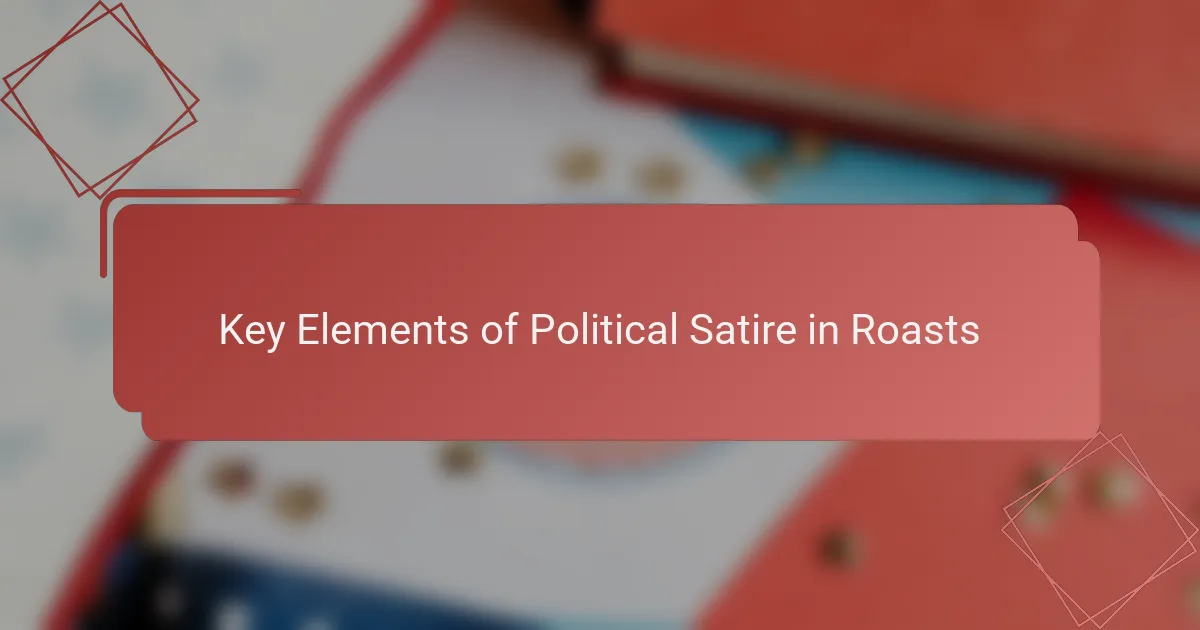
Key Elements of Political Satire in Roasts
Political satire in Comedy Central’s roasts hinges on its sharp wit and fearless commentary, which often cuts through political facades with brutal honesty. I remember watching one roast where the humor wasn’t just about getting laughs; it was about making you think differently about familiar political figures and their actions. That blend of humor and critique feels like an essential toolkit for political satire on this platform.
What makes these roasts stand out for me is their use of exaggeration and irony to highlight political absurdities, sometimes hitting closer to home than I expected. The way the roasts draw on current events, public controversies, and personal flaws of politicians creates a unique space where satire becomes a powerful form of political commentary.
- Exaggeration of political traits to highlight absurdities
- Use of irony and sarcasm to expose contradictions
- Incorporation of current events and scandals for relevance
- Personal attacks framed as humor to challenge public personas
- Engaging the audience through relatable political frustrations
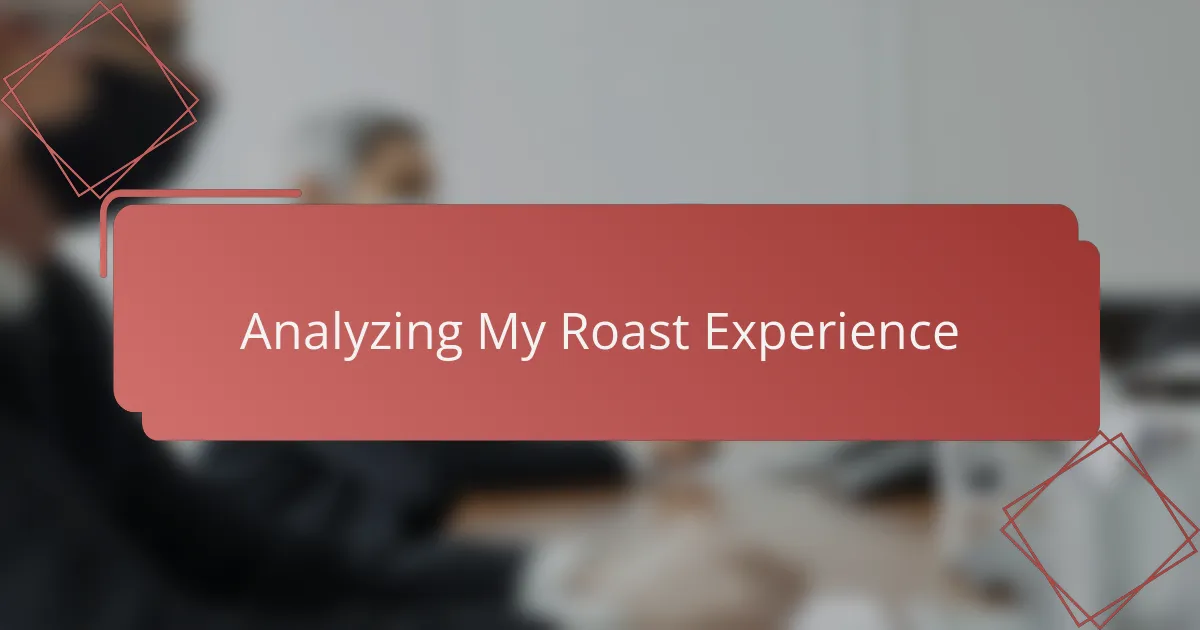
Analyzing My Roast Experience
Watching Comedy Central’s roast up close was an eye-opening dive into fearless humor. I remember feeling both surprised and impressed by the sheer boldness of the jokes, especially when politics became the centerpiece. It’s one thing to hear political satire in casual conversation, but witnessing it in this raw, unapologetic format made me appreciate the craft of roasting more deeply.
The emotional rollercoaster was real—there were moments I laughed uncontrollably and others when I winced, reminded how sharp satire can cut. From my perspective, this blend of humor and political critique is what keeps these roasts compelling and relevant.
- The seamless balance of humor and pointed political critique
- The surprising empathy behind some harsh jokes, showing complex satire
- How the roasters use timing and delivery to maximize impact
- The challenge of making political topics funny without losing respect
- Personal moments of laughter and discomfort during controversial jokes
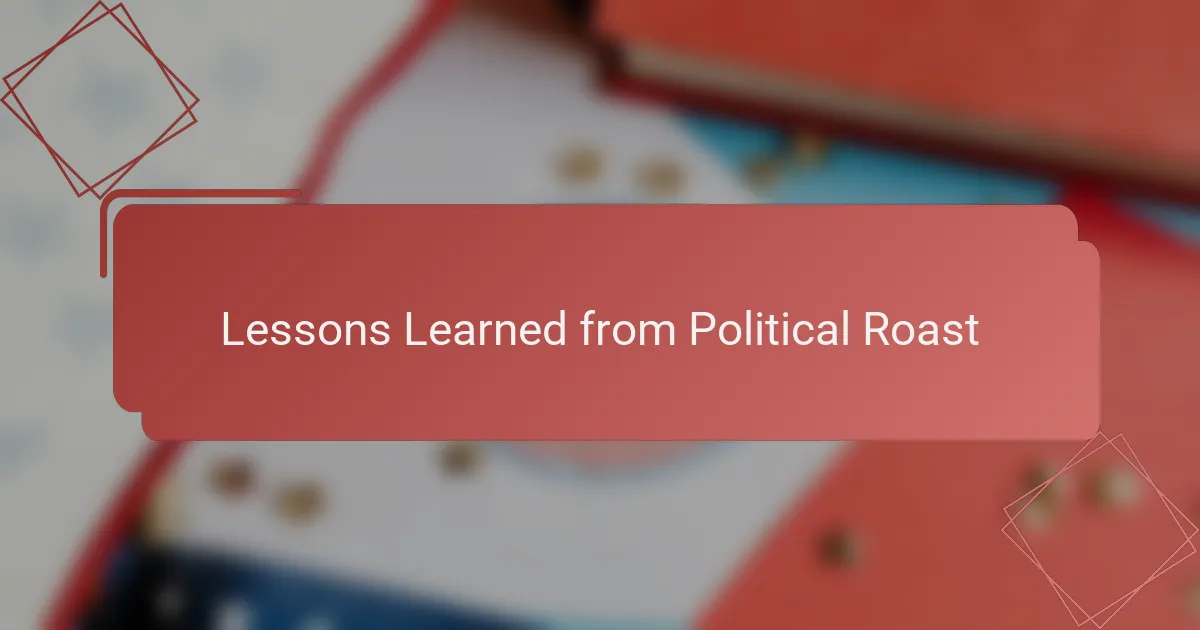
Lessons Learned from Political Roast
One important lesson I took away from watching political roasts is that humor can serve as a mirror reflecting uncomfortable truths. I’ve noticed how a well-timed joke not only shatters political facades but also encourages us to reconsider our own biases. Isn’t it fascinating how laughter can open the door to deeper questioning?
Another insight is that political roasts teach us about the power of boldness in satire. From my experience, the fearlessness with which roasters tackle sensitive topics forces both the audience and the targets to confront flaws they might prefer to ignore. It made me realize that sometimes, biting humor is necessary to break through political spin.
Lastly, the emotional mix roasts evoke—amusement coupled with unease—showed me that satire isn’t just about entertainment. I often found myself laughing and then pausing to reflect, which felt like a unique space where humor became a catalyst for social discourse. Have you ever chuckled and suddenly felt challenged at the same time? That’s the magic of a political roast at work.
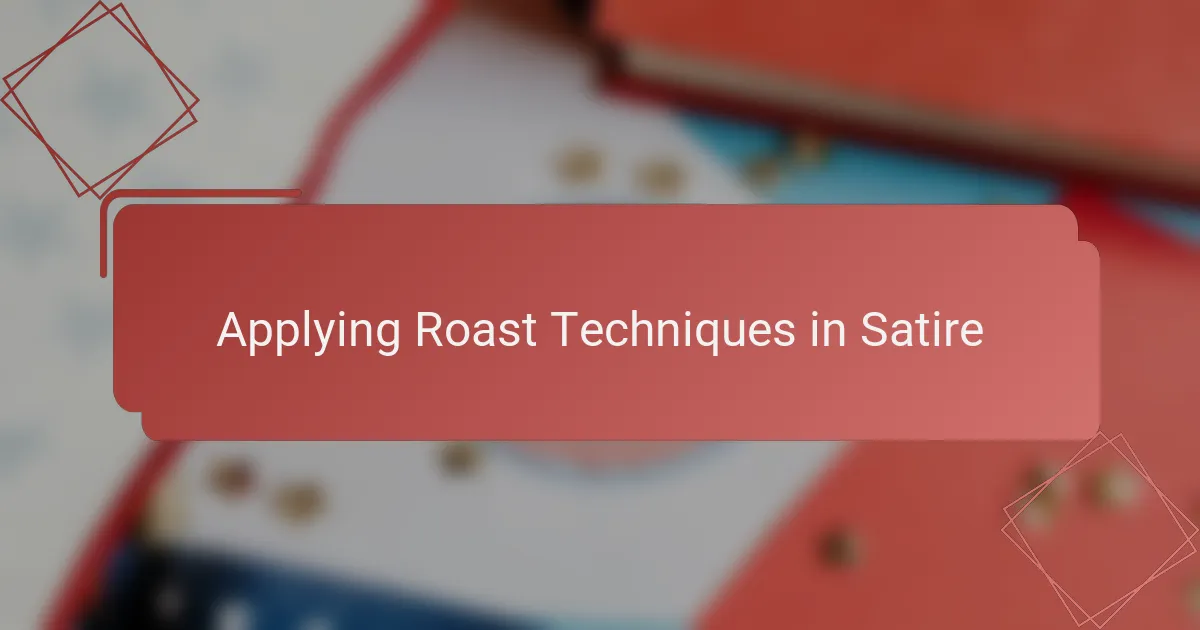
Applying Roast Techniques in Satire
When I started applying roast techniques to political satire, I realized how effective exaggeration can be in revealing the oddities behind political personas. For example, inflating a leader’s stubbornness into absurdity isn’t just funny—it forces us to see their behavior from a fresh, critical angle. Have you noticed how this kind of over-the-top humor makes political flaws impossible to ignore?
Irony and sarcasm are like the secret weapons in a roaster’s arsenal, and I found that using them in satire adds layers of meaning beyond the punchline. When a joke says one thing but implies another, it invites the audience to dig deeper. I remember crafting satire that seemed lighthearted at first, then hit with a sharp twist that left even me reflecting on the underlying political message.
Finally, what strikes me is how personal attacks, when framed cleverly as jokes, humanize political figures while still challenging their public image. I once attempted a roast-style critique that balanced humor with respect, and the reaction showed me how powerful this technique can be in breaking down defenses without alienating the audience. Isn’t that the essence of good satire—making people laugh and think at the same time?
